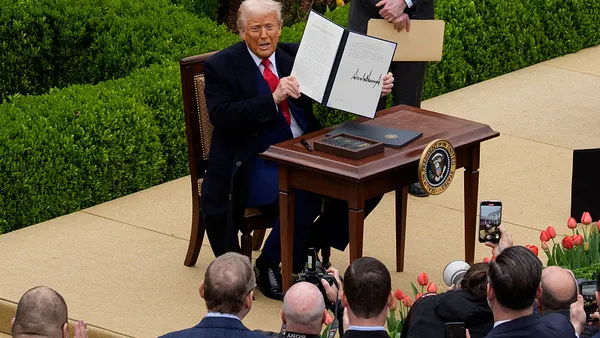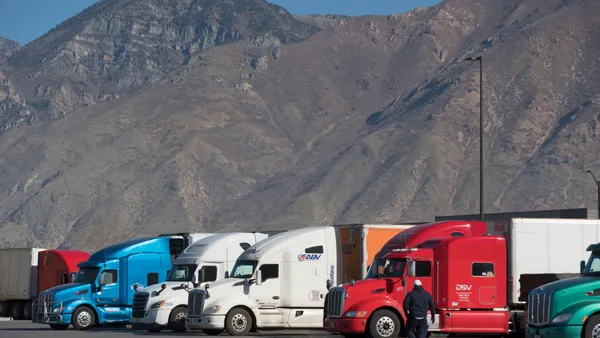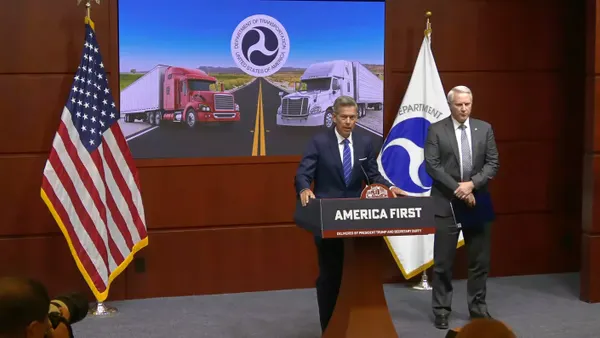Dive Brief:
- On March 2, a number of drivers asked a California court to approve a $5.5 million settlement with Stevens Transport in a four-year-old case that involves numerous carriers in anti-poaching allegations.
- The case revolves around drivers' claims that several major carriers, including CRST International and C.R. England, violated the U.S. Sherman Act and California's Cartwright Act in agreeing not to hire drivers from each other, according to Law360.
- If Stevens' deal is approved, total recovery would be $9.75 million. While most carriers in the case have settled with drivers, CRST International, CRST Expedited and C.R. England have not yet, according to Law360. The next hearing is set for April 1.
Dive Insight:
Anti-poaching behavior is considered a violation of antitrust policy. The Sherman Act bans every "contract, combination, or conspiracy in restraint of trade," and any "monopolization, attempted monopolization, or conspiracy or combination to monopolize," according to the Federal Trade Commission.
The alleged behavior is a sign of how far some major carriers will go to prevent turnover at a time when the American Trucking Associations forecasts there is a shortage of 80,000 Class 8 drivers. Carriers seeking to hire and retain drivers during a large worker shortage feel they are under constant pressure to keep drivers on-board.
Yet if carriers lure drivers away from competitors, it's possible they can be sued. Avoiding litigation was a defense used by some of the defendants. But that is an increasingly weak defense, as a federal court, in August, overturned a decision against Swift for hiring hundreds of drivers away from CRST Expedited.
The federal decision in August seemed to put non-compete contracts with drivers on shaky ground. In the case of CRST and others, there were often no such contracts, but rather obligations to pay back training tuition.
In the proposed deal, Stevens agreed to implement policies stating that it will not look at contracts as the sole basis for declining to hire drivers, although there are some exceptions, according to Law360.
Carriers, and employers in general, cannot say they have not been perviously warned off from looking at contracts. The U.S. Department of Justice issued guidance in October 2016, called, "Antitrust Guidance for Human Resource Professionals." The guidance warns, clearly, that "agreements among employers not to recruit certain employees or not to compete on terms of compensation are illegal." The Justice Department went further, saying it could even criminally investigate such intercompany agreements.
Since 2016, the driver shortage has only gotten worse, as e-commerce and supply chain issues have challenged U.S. TL capacity. Costello said the 2021 shortage numbers jumped 31% from the ATA estimate of 61,000 in 2018.
ATA chief economist Bob Costello, speaking at an ATA conference in Nashville, Tennessee, made clear the issue is not going away.
"Over the next decade, it could ... hit 160,000 at current trends," said Costello. "Let me very clear about that ... This is sort of a warning to the entire supply chain, to the motor carriers, to shippers, to everybody."
In December, the drivers asked the court to approve settlements with Schneider, Covenant Transport, Western Express, Southern Refrigerated Transport and Paschall Truck Lines, according to Law360.











